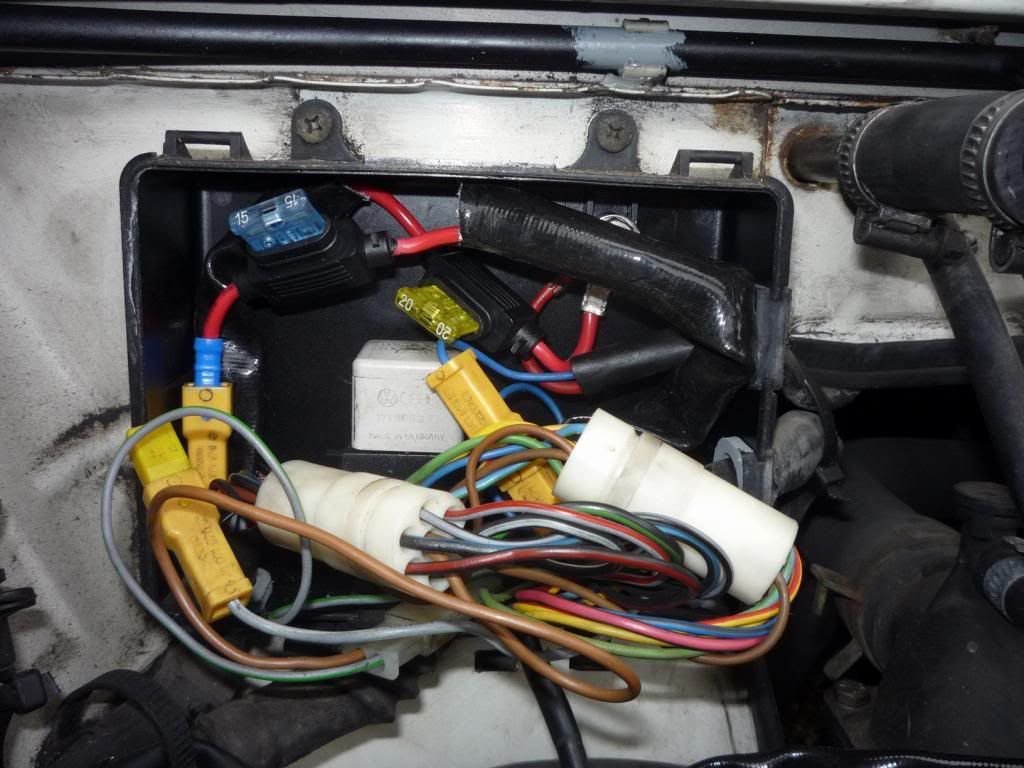when you think about it the tacho connection is the coil neg on later vans goes via the fusebox to the dash so 400v here would be a hazard, i'm sure ze germans would have made a warning sticker
anybody else got any wisdom on this
Moderators: User administrators, Moderators
Yay someone who can work it out.MidLifeCrisis wrote: It seems that at the point of the coil producing the high voltage for the spark, as the ground wire is 'broken', the magnetic field collapses and in doing so it induces a voltage in the primary coil in the order of a few hundred volts (but usually with zero current - as the ground path is disconnected). This high voltage lasts for a very short time (which might account for you not being able to measure it - I'd think that you'd need to use an oscilloscope).

itchyfeet wrote:i still cant help thinking that this will only happen as a result of coil switching and wont happen if the neg is permanently disconnected for secuirity as was the original question on this thread
bigherb wrote:Having a switch in the circuit means there will be high voltage to one side if the switch when it is open, any condensation inside the switch can cause flash overs leading to miss fires. Rev counters can be a problem as well, any diagnosis for misfires always involves disconnecting the rev counter.
itchyfeet wrote:bigherb wrote:You shouldn't connect any switch in the negative side of the coil you can have over 300 volts in that cable , and especially not one that earths the negative side as a immobiliser that's very dangerous it can cause the coil to explode.
when its permanently open circuit that wont be happening as that will only happen when switched and when its closed circuit the voltage wont be across the switch but across the ecu so i cant see the problem
http://en.m.wikipedia.org/wiki/Ignition_coil" onclick="window.open(this.href);return false;
agreed dont earth the coil directly
MidLifeCrisis wrote:
So what's the correct solution - isolate the positive supply to the coil??
Not really dangerous that was Itcys interpretation it might give you a tingle. The high voltage is needed to boost the voltage in the primary windings giving a better spark, any leak off that voltage due to poor insulation will cause miss fires due to a weak spark. Thats why rev counters can cause miss fires some of the cheaper ones fitted to electronic ignition need a diode in the live side to stop the high voltage finding a path back to a lower potential.MidLifeCrisis wrote: OK - so I think we are arriving at me understanding something (finally).
So, if the engine is running and the isolator switch was switched 'open' then there is a chance that the high voltage could jump the switch contacts (and that could potentially be dangerous to fingers near the switch)
CovKid wrote:Seems a far too academic way to tackle this though. Why not just interrupt the power to the coil altogether (ie positive side). If its not working, its not working. I can't see anyone going to the trouble of poking around to see WHY it won't start if they're about to steal your pride and joy. They'll just give up and try something easier. Keep it simple. After all, the engine bay isn't the easiest thing to get to for the opportunist and certainly not in a hurry.
